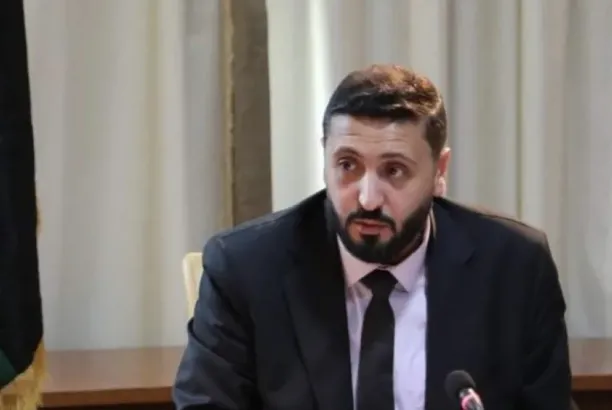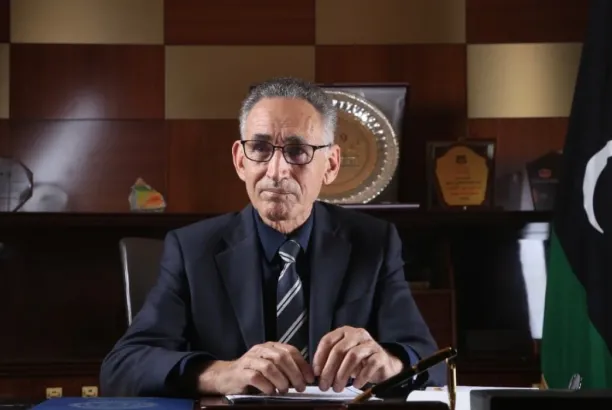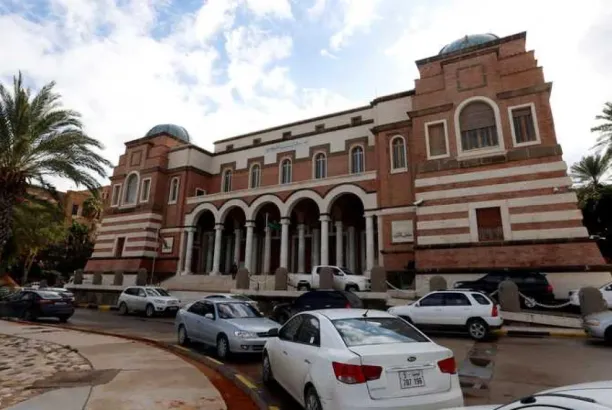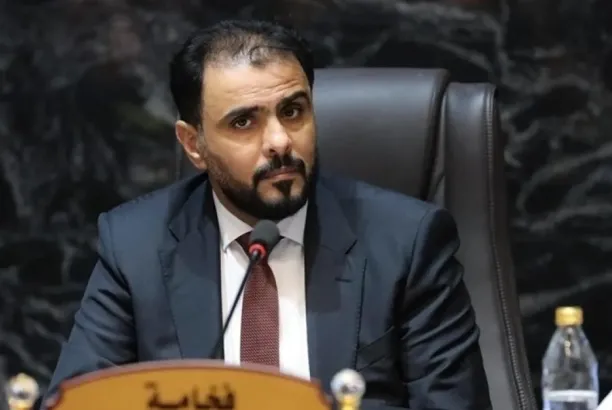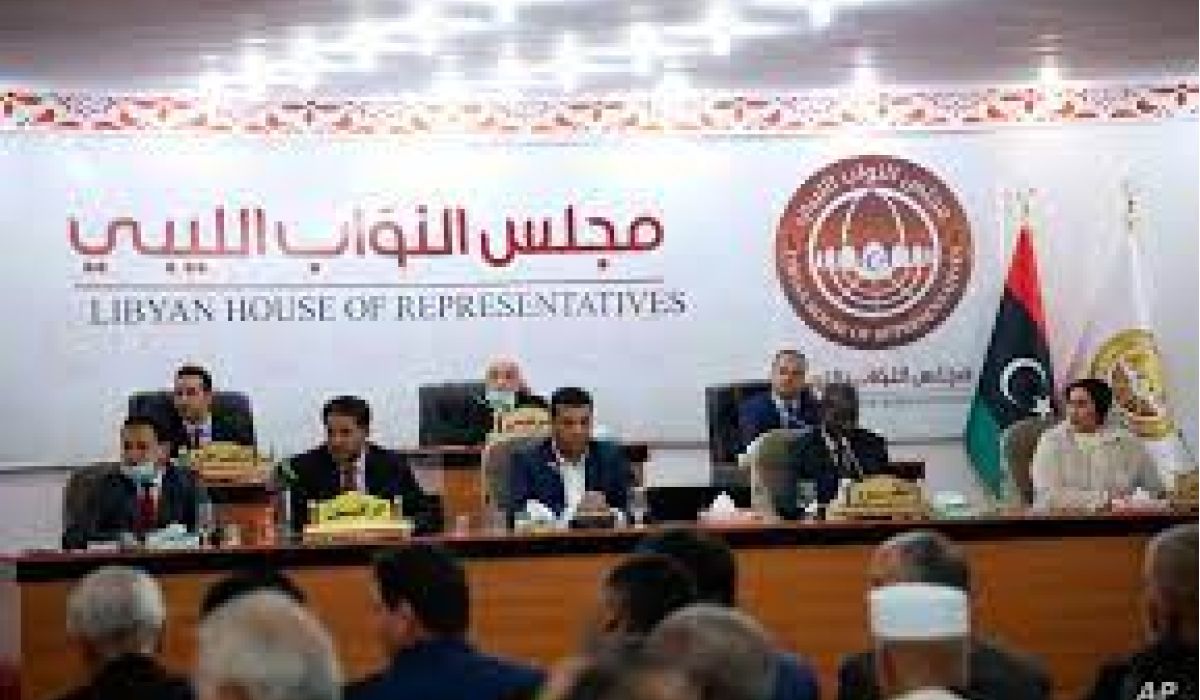
| News
The most prominent economic recommendations contained in the proposal of some members of the Joint Committee of the House of Representatives and the Supreme Council of the State
Some members of the Council of the Joint Committee of the House of Representatives and the Supreme Council of the State submitted a proposal for discussion, during their meeting in Cairo on the twelfth of this April, to agree on the constitutional basis and electoral laws under the auspices of the UN mission.
Among the general principles identified in the proposal are participation, equitable distribution of resources, equal opportunities, rationalization, curtailment and reduction of public spending, as well as local governance, expanded financial and administrative powers, a constitution, a free economy, fees and taxes to finance the budget, and protection and social responsibility for people with low incomes.
As for the objectives, they included the unification of state institutions, reparation for damages, the return of the displaced and immigrants, encouraging development and reconstruction programs outside the state budget, stimulating the Libyan private sector to participate in development projects, a free economy, expanding the base of private ownership, preventing government monopoly, separating management and ownership, and gradual treatment of the public economic and financial crisis.
Also, laying the basis for increasing Libya’s production of oil and gas from outside the state’s general budget with the participation of the public sector for the private sector for local and global supply, refining and manufacturing oil and gas locally in partnership with the Libyan private sector and foreign investors to absorb money supply, provide jobs and achieve development in all fields according to the constitution and its articles for the participation of the public sector for the private sector, as stated in Chapter Seven of the Administrative Contracts Regulations, which clarifies the mechanism for financing projects from outside the state’s general budget. The latter was not used by previous governments and their focus on public spending and expansion.
The proposal also stipulated that the Prime Minister and the Council of Ministers commit themselves to do the basic work for reparation within five months of their receipt by imposing fees on issuing visas, recruiting workers, residence permits, new cars, and on selling cigarettes and fuel (because they are the largest budget financing items in countries) after substituting commodity-to-cash subsidies and distributing shares. Public companies are free of charge to the Libyan people because they are funded by the public treasury to form general assemblies that represent the owners, and to be committed within a month of their receipt by issuing a local government decision with the expanded and internalized financial and administrative powers under the constitution and to benefit from the studies and decisions issued in this regard previously.
To be committed also, within two months of receiving them, to issue the executive regulations of the Libyan Commercial Law 23 of 2010, which defines the Libyan identity for the Libyan economy, and to reduce and reduce public spending within two months of their receipt and in consultation with the Audit Bureau, to issue the executive regulations for regulating partnership between the public sector and the private sector in accordance with the constitution and Chapter Seven, the list of administrative contracts.
As well as the commitment, within three months of their receipt, to develop a vision and basis for changing the administrative contracts of an investment nature into investment contracts after the adoption of the executive regulations for the participation of the public sector for the private sector, and to set a vision and basis for public financial reforms and use the program and performance budget in coordination with the Economic Development Council and activate the Investment Cheque Law N°4 of 2016 in consultation with the Central Bank of Libya and benefiting from the program proposed by the Central Bank of Libya regarding economic reform after the conflict, and by laying a foundation and vision through the National Program for Small and Medium Enterprises and the United Nations institutions, in order to open an expanded field for small and medium enterprises to include young people in development projects throughout the Libyan territory.
The Prime Minister and the Council of Ministers have to commit themselves, within five months of their receipt, to the settlement of development projects and infrastructure in Libya by benefiting from the assets of the Libyan Investment Corporation, the Libyan Internal Investment and Development Fund, local and international financial institutions, and he Libyan private sector in accordance with the constitution and the participation of the public sector to the private sector. The commitment has to be made within three Months from their receipt by setting a vision and basis for health insurance for the entire Libyan people, settling treatment at home according to the constitution, the participation of the public sector and the private sector, providing cash support instead of commodities for chronic disease owners, benefiting from the experiences of countries and United Nations institutions, and issuing the executive regulations for Law N°20 of 2010 on health insurance.
According to what was mentioned during the proposal, the Prime Minister and the Council of Ministers have to commit themselves, within two months of their receipt, to establishing a vision and basis for distributing oil revenues, with allocating part of the revenue to the cities and villages surrounding oil fields and sites, and committing, within three months, to restructuring the National Oil Corporation to be a holding company working in exploration and production, without the services, and allocating part of its revenue to cover its administrative, operational and development expenses. Within our months of receiving them, a commitment is made to set a vision and basis for reducing the use of diesel, natural gas and crude oil in power plants, restructuring the General Electricity Company, and expanding alternative energies, the most important of which are solar, wind and hydrogen for their availability in Libya under the participation of the public sector to the private sector and benefit from the experiences of countries and the United Nations.
The Prime Minister and the Council of Ministers also commit themselves, within two months of their receipt, to establishing a vision and basis for reducing embassies and consulates abroad, reducing staff, and maintaining embassies and consulates with countries with which Libya has commercial and economic relations of more than five million dollars annually, and that the commitment is made within three months of their receipt to develop a vision and a basis for the investment map in Libya and to open of residential, industrial, recreational, tourist, service, commercial and other schemes.
It was also mentioned that the Prime Minister and the Council of Ministers commit themselves, within a month of his assignment, to hold an economic forum based on studying the alternative to the failed system, as well as the experiences of countries and the transition from the feudal state to the state of citizenship in accordance with the principles of small government to address organizational and development errors, and to study the national renaissance project to move from the labyrinth of wealth distribution to prospects for the wealth industry (the modern citizenship state project through the practical framework of the principles of small government) to achieve the best possible level of justice and transparency and the return of the spirit of citizenship to citizens, which automatically leads to the return of a sense of actual belonging to the homeland to achieve peace, stability and prosperity.
The Prime Minister and the Council of Ministers commit themselves, within a month of receiving them, using the standards and specifications of the United Nations, to appoint an advisory body of technocrats, holders of higher educational qualifications and work experience in international institutions and businessmen to Libya to provide advice that keeps pace with the times to the government and its institutions.


